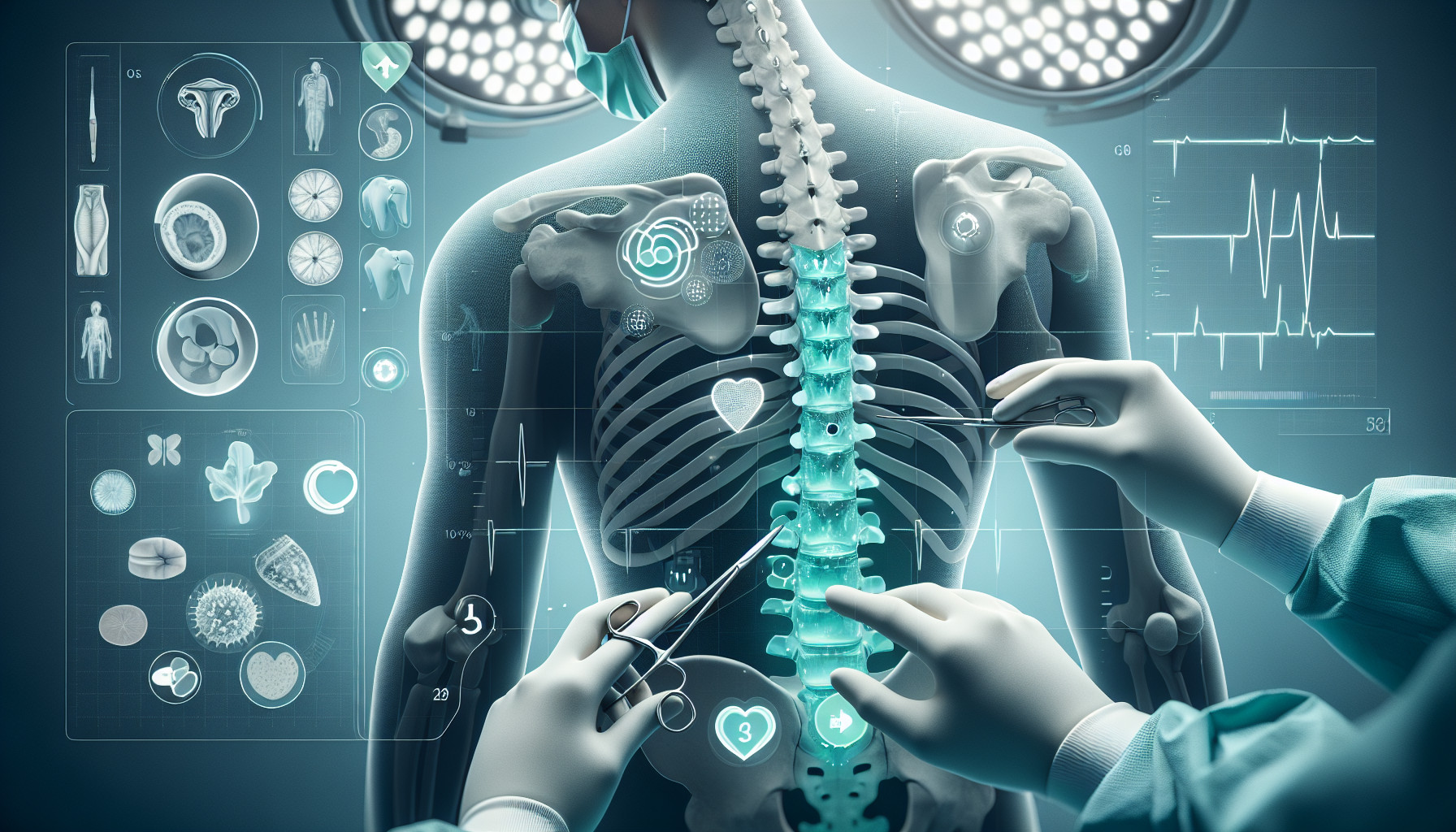Our Summary
This research paper discusses the best order for performing spinal surgery and hip replacement in patients who have both degenerative scoliosis (a condition where the spine curves to the side as you get older) and hip disease. The researchers looked at the cases of 26 patients who had both these conditions and had undergone both surgeries between June 2012 and June 2015.
They found that if spinal surgery was performed first, it helped in fixing issues related to lumbar (lower back) nerve symptoms and restored the balance of the spine. This in turn made the following hip replacement surgery easier and helped to correct any remaining imbalance after spinal surgery.
However, they also found that after spinal surgery and before hip replacement, patients had severe limitations in their range of motion. Also, certain measurements and scores related to hip function and disability showed differences between the group who had hip surgery first and the group who had spinal surgery first.
Overall, the researchers suggest that performing spinal surgery before hip replacement might be a better sequence for patients with both degenerative scoliosis and hip disease.
FAQs
- What is the suggested order of surgeries for patients with both degenerative scoliosis and hip disease according to the research?
- What are the potential benefits of performing spinal surgery before hip replacement in patients with degenerative scoliosis and hip disease?
- What limitations were observed in patients who had spinal surgery before hip replacement?
Doctor’s Tip
A doctor might tell a patient undergoing scoliosis surgery that it is important to follow the recommended sequence of surgeries in order to optimize outcomes and improve overall function and balance. In this case, having spinal surgery before hip replacement can help address lumbar nerve symptoms and restore spinal balance, making the subsequent hip surgery easier and more effective. It is important to discuss the best order of surgeries with your healthcare team to ensure the best possible results.
Suitable For
Patients who are typically recommended scoliosis surgery are those who have a curvature of the spine that is severe and progressive, causing pain, difficulty breathing, or impacting their quality of life. Other factors that may indicate the need for surgery include the curvature worsening despite conservative treatments, such as bracing or physical therapy, or if the curvature is affecting the patient’s ability to perform daily activities.
In the case of patients with both degenerative scoliosis and hip disease, the decision to recommend surgery will depend on the severity of both conditions and how they are impacting the patient’s overall health and function. It is important for patients to work closely with their healthcare providers to determine the best course of treatment for their individual situation.
Timeline
- Diagnosis of degenerative scoliosis and hip disease
- Consultation with orthopedic surgeon and discussion of treatment options
- Pre-operative appointments, tests, and preparation for surgery
- Spinal surgery is performed to correct the curvature of the spine and alleviate symptoms
- Recovery period following spinal surgery, which may include physical therapy and rehabilitation
- Evaluation of hip function and symptoms post-spinal surgery
- Decision to proceed with hip replacement surgery
- Pre-operative appointments, tests, and preparation for hip replacement surgery
- Hip replacement surgery is performed to address hip disease and improve function
- Recovery period following hip replacement surgery, which may include physical therapy and rehabilitation
- Follow-up appointments with orthopedic surgeon to monitor progress and address any concerns.
What to Ask Your Doctor
Some questions a patient should ask their doctor about scoliosis surgery include:
- What are the potential risks and complications associated with scoliosis surgery?
- How long is the recovery period after scoliosis surgery?
- Will I need physical therapy or rehabilitation after the surgery?
- What are the expected outcomes and benefits of scoliosis surgery?
- Are there any alternative treatments or non-surgical options for scoliosis?
- How will scoliosis surgery affect my daily activities and quality of life?
- Will I need any assistive devices or modifications to my lifestyle after the surgery?
- What is the success rate of scoliosis surgery in patients with my specific condition?
- How often will I need follow-up appointments after the surgery?
- Are there any specific precautions or restrictions I should be aware of post-surgery?
Reference
Authors: Zhang H, Yu H, Zhang M, Huang Z, Xiang L, Liu X, Wang Z. Journal: J Int Med Res. 2020 Dec;48(12):300060520959224. doi: 10.1177/0300060520959224. PMID: 33290130
